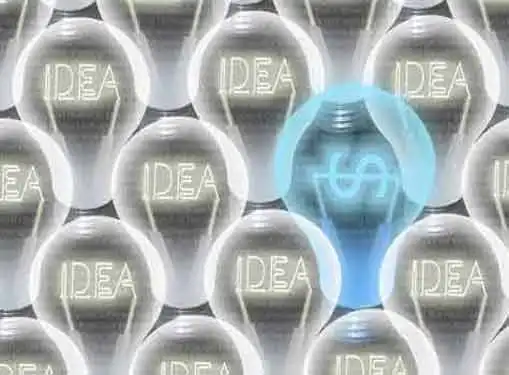Intellectual Property and Entrepreneurs
Valuing Intellectual Property
How much is a patent worth? How much is a trademark or service mark worth? Whatever you can get for it -- that's the easy answer.
Assigning value to real property can sometimes be difficult. But assigning value to intellectual property - that can seem like an impossible task.

Even so, it is sometimes necessary to allocate a dollar value to intangible resources such as ideas, concepts, and inventions. The big question is, "How do you do that?"
The thing to keep in mind when assigning a value to intellectual property is that there must be a rational basis for the dollar value you believe your idea is worth. Pulling a dollar figure out of thin air just won't cut, especially when you are dealing with business-savvy buyers who won't buy unless they are certain the purchase makes sense from a bottom line perspective. Ultimately, the valuation process must take into account several factors, including the following:
Importance
Not all patents are created equal. Some patents represent important breakthroughs, paving the way for significant advances in science, technology, or industry. Other patents, however, are less important are often just improvements on a pre-existing process. Although it is easier to assign a higher value to breakthrough ideas, less monumental improvements can also be lucrative, especially if they have the potential to provide an edge in a highly competitive industry.
Market
In addition to importance, another factor in assessing the value of an idea is its potential marketability. Your patent may represent an enormous breakthrough, but if it only appeals to a very slim cross-section of the marketplace, it might not be worth much. However, inventions that can be used in a wide range of products can be worth a lot of money, so it's important to spend some time brainstorming about all of the possible applications - both inside and outside your industry.
Term
Many people don't realize that patents are only granted for a limited time period - twenty years. If your patent is due to expire soon, its value is significantly lessened because potential buyers can just wait it out and use your invention for free once the expiration date has passed. Therefore, unless you plan on keeping your patent for the duration of its term, it's a good idea to sell it sooner rather than waiting until later when it has lost most of its value.
Prior Art
The issue of prior art is really an issue of simple economics. When a market is glutted with a large quantity of similar products, the consumer has more choices and the value of each product suffers. The market for intellectual property works the same way. If there are a large number of patented inventions within your field of innovation, the value of your property is likely to be less than would be if your invention was truly one-of-a-kind. Before investing months or even years bringing a new idea to life, it might be worthwhile to survey the landscape of prior art and determine if the field is already overpopulated with marketable ideas.
Share this article
Additional Resources for Entrepreneurs




Conversation Board
We greatly appreciate any advice you can provide on this topic. Please contribute your insights on this topic so others can benefit.